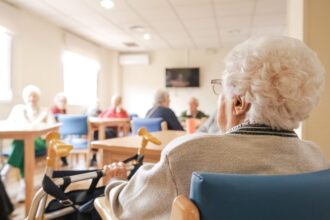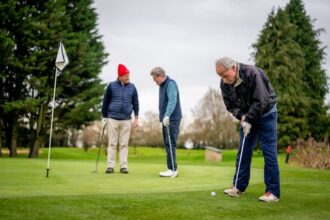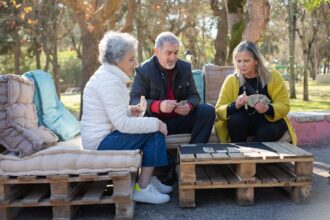When air conditioning is unavailable during extreme heat, millions of older adults and other vulnerable groups face a significantly heightened risk of cardiac complications and heat-related illnesses. Researchers from the Department of Kinesiology at Penn State have explored a straightforward and low-cost intervention to address this challenge. Their new study, published in Experimental Physiology, shows that immersing the hands and forearms in room-temperature tap water, at around 68 degrees Fahrenheit, can effectively cool older adults and ease strain on the heart during dangerously hot conditions.
Older adults are especially susceptible to the health consequences of heat because the body’s natural cooling mechanisms decline with age. Rachel Cottle, lead author of the study and now a postdoctoral fellow at the University of Texas Southwestern Medical Center, explained that older individuals sweat less efficiently and circulate blood to their skin less effectively compared to younger people. This makes them more vulnerable to overheating, which in turn contributes to the strikingly high mortality rates observed among older populations during heat waves. Even modest reductions in body temperature, she stressed, can be critical in protecting against heat-related harm.
To test their hypothesis, the researchers recruited twelve healthy participants over the age of sixty-five. Each volunteer was exposed to two hours in a hot and humid chamber set at 93 degrees Fahrenheit with 77% humidity—conditions designed to mimic the environmental stress of a severe heat wave. In some trials, participants submerged their hands and forearms up to the elbow in tap water for ten minutes, and then repeated the process once more after twenty minutes. In other trials, they sat in the chamber with no cooling intervention. Every participant completed the protocol four times, twice with water immersion and twice without. This design mirrored a realistic scenario in which an individual might fill a sink with water and reuse it during a power outage.
The results were telling. Water immersion reduced participants’ core body temperature by roughly half a degree Fahrenheit and, importantly, lowered heart rate. While the numerical drop in temperature may appear modest, it represented a meaningful reduction in thermal strain. More significant still was the decline in heart rate, which directly reduces cardiovascular stress. Because most heat-related deaths in older adults are tied to cardiac events, easing the workload on the heart through such a simple measure could make a tangible difference in survival outcomes during heat emergencies.
Despite the promise of this method, the researchers cautioned against seeing hand and forearm immersion as a first-line strategy. Larry Kenney, senior author of the study and professor of physiology and kinesiology at Penn State, emphasised that the priority during heat waves should always be to reduce overall heat exposure. Moving to an air-conditioned environment—whether a friend’s house, a shopping centre, a library, or a designated cooling centre—remains the most effective approach. Staying hydrated is essential, and while fans can provide relief in certain conditions, they are useless during power outages and can worsen thermal stress when outdoor temperatures are extremely high.
The study highlights the increasing urgency of preparing for heatwaves, which are becoming more frequent and severe due to climate change. Power outages, driven by high demand for air conditioning, exacerbate the problem by removing the most reliable cooling tool. In such scenarios, simple strategies such as hand and forearm immersion could buy valuable time and reduce health risks. As Cottle noted, “If everyone takes precautions and looks out for older friends, family members, and neighbours, we can protect many of the most vulnerable people among us.”
More information: Rachel Cottle et al, Intermittent hand and forearm immersion in 20°C water attenuates thermal, cardiovascular, and perceptual strain in older adults during heat stress, Experimental Physiology. DOI: 10.1113/EP092789
Journal information: Experimental Physiology Provided by Penn State








